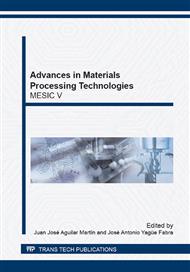p.3
p.9
p.17
p.23
p.29
p.35
p.41
p.47
Influence of Standard ISO 21500 in the Management of Collaborative Networks
Abstract:
In today’s globalized world, knowledge management (KM) has become an essential tool for achieving economic growth, corporate development and competitiveness. Knowledge management must also involve a balance between good practices and productive processes. Therefore, acquisition of knowledge (generation of ideas and opportunities), as well as its implementation in processes, where it can be put into practice, is of great importance. The objective of this paper is to propose action lines to solve the problems inherent in collaborative knowledge management related technological barrier from the perspective of Project Management. Among the results highlights the application of ISO 21500:2012 international standard on good practices in Project Management, which helps establish a framework for Project Managers that helps them manage key aspects such as deadlines, cost and deliverables, achieving stakeholders’ satisfaction, which are related to appropriate management of collaborative networks.
Info:
Periodical:
Pages:
9-14
DOI:
Citation:
Online since:
June 2014
Price:
Сopyright:
© 2014 Trans Tech Publications Ltd. All Rights Reserved
Share:
Citation:


